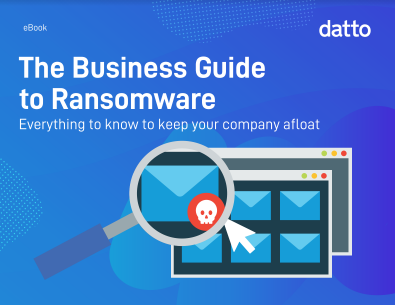Government and industry look to cryptocurrency regulation to slow ransomware
However, experts warn that crypto laws won’t be a silver bullet against attacks


Tech companies and industry groups are urging governments to act against the rising threat of ransomware by regulating cryptocurrency.
The Ransomware Taskforce has released a report urging governments to require cryptocurrency exchanges, crypto kiosks, and over-the-counter trading desks to comply with existing laws, including Know Your Customer (KYC), Anti-Money Laundering (AML), and Combatting Financing of Terrorism (CFT) laws. The task force comprises participants from governments, software firms, cyber security vendors, non-profit and academic institutions worldwide.
The Combating Ransomware report made 48 recommendations to address the ransomware threat.
It called on the US to “lead by example” and execute a “sustained, aggressive, whole of government, intelligence-driven anti-ransomware campaign, coordinated by the White House.”
It said this must include the establishment of an Interagency Working Group led by the National Security Council in coordination with the nascent National Cyber Director; an internal US Government Joint Ransomware Task Force; and a collaborative, private industry-led informal Ransomware Threat Focus Hub.
The report also urged coordinated, international diplomatic, and law enforcement efforts to proactively prioritize ransomware through a comprehensive, resourced strategy, “including using a carrot-and-stick approach to direct nation-states away from providing safe havens to ransomware criminals.”
Industry figures welcomed tighter regulation but said such laws should not treated as a sole means of stopping ransomware.
Get the ITPro daily newsletter
Sign up today and you will receive a free copy of our Future Focus 2025 report - the leading guidance on AI, cybersecurity and other IT challenges as per 700+ senior executives
Peter Grimmond, International CTO & International VP Technical Sales at Veritas Technologies, told ITPro that tighter regulation on cryptocurrencies will certainly “throw a spanner in the works for cybercriminals but businesses should be wary of thinking of this as a silver bullet or of letting their guard down.”
“Hackers have a long history of finding ways of getting paid for their activity. In the early days, it was sending cheques to anonymous PO boxes, then making payments to anonymous vendors on eCommerce marketplaces. As these routes were shut down, hackers evolved their payment demands to cryptocurrencies,” Grimmond said.
Grimmond added that while he supported any move that makes it harder for criminals to take advantage of the organizations, businesses should be wary of a false sense of security cryptocurrency regulation might bring and remain mindful that the best way to protect themselves is to ensure their data is backed up and encrypted.
RELATED RESOURCE

The business guide to ransomware
Everything you need to know to keep your company afloat
Ilia Kolochenko, CEO, founder, and chief architect at ImmuniWeb, told ITPro the report provides a broad spectrum of valuable and bright ideas. However, most of them are "burdensome and far too expensive from a practical viewpoint."
"Strong global collaboration to combat cybercrime is probably a utopia, especially amid the rapidly growing political tensions around the globe, unclarity of international law’s application to cyberwar and disruptive aggressions in the digital space," Kolochenko said.
"Sadly, virtually all Western law enforcement agencies are significantly underfunded today, while efficient combat with ransomware will probably require at least a tenfold budget increase - just to address this isolated phenomena. Spiraling pandemic losses will unlikely allow countries to spend more on cybercrime prosecution and investigation units unless the private sector donates billions of dollars. Fighting digital currencies is a waste of time, cybercriminals will find a myriad of other smart ways to bypass sanctions and get paid in impunity."
Rene Millman is a freelance writer and broadcaster who covers cybersecurity, AI, IoT, and the cloud. He also works as a contributing analyst at GigaOm and has previously worked as an analyst for Gartner covering the infrastructure market. He has made numerous television appearances to give his views and expertise on technology trends and companies that affect and shape our lives. You can follow Rene Millman on Twitter.
-
 Cleo attack victim list grows as Hertz confirms customer data stolen
Cleo attack victim list grows as Hertz confirms customer data stolenNews Hertz has confirmed it suffered a data breach as a result of the Cleo zero-day vulnerability in late 2024, with the car rental giant warning that customer data was stolen.
By Ross Kelly
-
 Lateral moves in tech: Why leaders should support employee mobility
Lateral moves in tech: Why leaders should support employee mobilityIn-depth Encouraging staff to switch roles can have long-term benefits for skills in the tech sector
By Keri Allan
-
 Starmer bets big on AI to unlock public sector savings
Starmer bets big on AI to unlock public sector savingsNews AI adoption could be a major boon for the UK and save taxpayers billions, according to prime minister Keir Starmer.
By George Fitzmaurice
-
 UK government targets ‘startup’ mindset in AI funding overhaul
UK government targets ‘startup’ mindset in AI funding overhaulNews Public sector AI funding will be overhauled in the UK in a bid to simplify processes and push more projects into development.
By George Fitzmaurice
-
 UK government signs up Anthropic to improve public services
UK government signs up Anthropic to improve public servicesNews The UK government has signed a memorandum of understanding with Anthropic to explore how the company's Claude AI assistant could be used to improve access to public services.
By Emma Woollacott
-
 ‘Europe could do it, but it's chosen not to do it’: Eric Schmidt thinks EU regulation will stifle AI innovation – but Britain has a huge opportunity
‘Europe could do it, but it's chosen not to do it’: Eric Schmidt thinks EU regulation will stifle AI innovation – but Britain has a huge opportunityNews Former Google CEO Eric Schmidt believes EU AI regulation is hampering innovation in the region and placing enterprises at a disadvantage.
By Ross Kelly
-
 The UK’s AI ambitions face one major hurdle – finding enough home-grown talent
The UK’s AI ambitions face one major hurdle – finding enough home-grown talentNews Research shows UK enterprises are struggling to fill AI roles, raising concerns over the country's ability to meet expectations in the global AI race.
By Emma Woollacott
-
 US government urged to overhaul outdated technology
US government urged to overhaul outdated technologyNews A review from the US Government Accountability Office (GAO) has found legacy technology and outdated IT systems are negatively impacting efficiency.
By George Fitzmaurice
-
 A big enforcement deadline for the EU AI Act just passed – here's what you need to know
A big enforcement deadline for the EU AI Act just passed – here's what you need to knowNews The first set of compliance deadlines for the EU AI Act passed on the 2nd of February, and enterprises are urged to ramp up preparations for future deadlines.
By George Fitzmaurice
-
 UK financial services firms are scrambling to comply with DORA regulations
UK financial services firms are scrambling to comply with DORA regulationsNews Lack of prioritization and tight implementation schedules mean many aren’t compliant
By Emma Woollacott